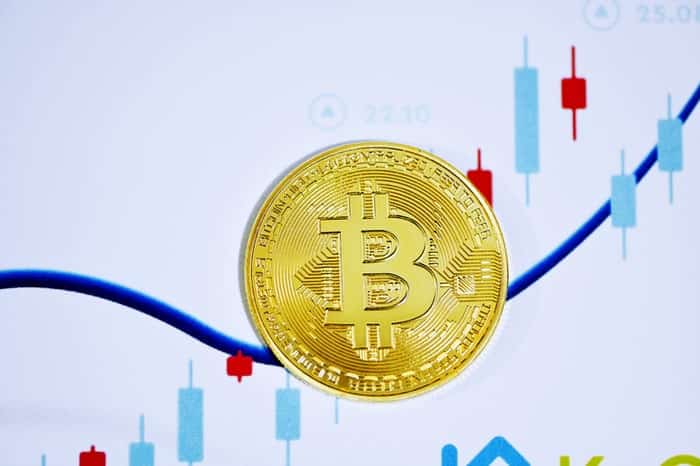Is your wallet feeling a little lighter these days? You’re not alone. Billionaire investor Carl Icahn, echoing concerns from Federal Reserve Chairman Jerome Powell, has highlighted the growing issue of inflation and potential supply chain disruptions. But here’s the kicker: Icahn suggests Bitcoin might just be the best shield against this economic storm.
Icahn’s Warning: Are We Heading for a Market Crisis?
Icahn doesn’t mince words. He believes the current economic trajectory, marked by significant money printing, is unsustainable. He paints a picture of a looming crisis, a sentiment that resonates with many who are witnessing the increasing cost of everyday goods.
Here’s a breakdown of Icahn’s key concerns:
- Rising Inflation: Icahn sees inflation as a pervasive issue, impacting the prices of goods across the board.
- Supply Chain Issues: Echoing Powell, Icahn acknowledges that supply bottlenecks are contributing to the upward pressure on prices.
- Dollar Devaluation: As the government continues its economic experiments, Icahn suggests the dollar is losing its purchasing power.
In his own words, Icahn told CNBC:
“In the long run we are certainly going to hit the wall… I really think there will be a crisis the way we are going, the way we are printing money, the way we are going into inflation. If you look around you, you see inflation all around you and I don’t know how you deal with that in the long term.”
Powell’s Perspective: A Shared Concern?
Interestingly, Icahn’s views align with earlier statements from Federal Reserve Chairman Jerome Powell. While Powell initially described inflation as “transitory,” he acknowledged the pressures stemming from supply chain bottlenecks.
Powell noted:
“As the economy continues to reopen and spending rebounds, we are seeing upward pressure on prices, particularly due to supply bottlenecks in some sectors.”
However, Powell maintained a hopeful outlook, stating:
“These effects have been larger and longer lasting than anticipated, but they will abate, and as they do, inflation is expected to drop back toward our longer-run 2% goal.”
Bitcoin: Icahn’s Unconventional Inflation Hedge?
Now, for the intriguing part. Amidst his concerns about inflation, Icahn floated the idea of Bitcoin as a potential hedge. While he hasn’t publicly declared a significant position in cryptocurrencies, his comments suggest a growing recognition of their potential role in a changing economic landscape.
Ryan Adams, a prominent figure in the crypto space, even suspects Icahn might already be dipping his toes in the digital asset waters.
The Billion-Dollar Question: Does Bitcoin Have Intrinsic Value?
Despite hinting at Bitcoin’s hedging capabilities, Icahn remains somewhat cautious. He admits his company doesn’t fully understand Bitcoin, highlighting the complexities and the ongoing debate about its intrinsic value and role as a store of value.
Here’s a glimpse into Icahn’s thought process:
“We got a lot of smart guys working at Icahn & Company, and we just don’t understand bitcoin… I’m not saying it’s bad or good, I’m just saying we don’t understand it… We’re not going to invest in something we don’t get […] The jury is really out on whether bitcoin has intrinsic value or acts as a store of value… If inflation gets rampant, I guess it does have value… There are so many variables, it is a very difficult thing to invest in.”
Bitcoin as a Hedge: Weighing the Pros and Cons
So, is Bitcoin truly a viable hedge against inflation? Let’s consider the arguments:
| Potential Benefits | Potential Challenges |
|---|---|
| Limited Supply: Bitcoin’s capped supply of 21 million coins makes it inherently resistant to inflationary pressures caused by increased money supply. | Volatility: Bitcoin’s price can fluctuate dramatically, making it a risky asset, especially in the short term. |
| Decentralization: Bitcoin operates outside traditional financial systems, potentially offering protection against government intervention and monetary policy decisions. | Regulatory Uncertainty: The regulatory landscape for cryptocurrencies is still evolving, which can impact its adoption and price. |
| Global Accessibility: Bitcoin can be accessed and transferred globally, offering a potential alternative in regions with unstable currencies. | Technological Risks: Concerns about security breaches, network vulnerabilities, and the environmental impact of mining exist. |
Actionable Insights: Should You Follow Icahn’s Lead?
Icahn’s comments serve as a reminder to consider alternative investment strategies in the face of rising inflation. While he hasn’t made a definitive call on Bitcoin, his acknowledgment of its potential is significant.
Here are a few key takeaways:
- Stay Informed: Keep abreast of economic trends and the potential impact of inflation on your investments.
- Diversify Your Portfolio: Don’t put all your eggs in one basket. Explore different asset classes to mitigate risk.
- Do Your Research: If you’re considering Bitcoin or other cryptocurrencies, understand the technology, risks, and potential rewards.
- Consider Your Risk Tolerance: Bitcoin is a volatile asset. Only invest what you can afford to lose.
The Bottom Line: A Shifting Financial Landscape
Carl Icahn’s perspective, combined with the ongoing inflation debate, highlights a potential shift in the financial landscape. Whether Bitcoin becomes a mainstream inflation hedge remains to be seen, but its growing recognition among prominent investors suggests it’s a force to be reckoned with. As the economic future unfolds, keeping a close eye on both traditional markets and the burgeoning world of cryptocurrencies will be crucial for navigating the challenges and opportunities ahead.
Disclaimer: The information provided is not trading advice, Bitcoinworld.co.in holds no liability for any investments made based on the information provided on this page. We strongly recommend independent research and/or consultation with a qualified professional before making any investment decisions.


